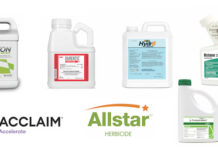The Montgomery County Council passed legislation to restrict the use of pesticides on both county-owned and private property by a 6-3 vote.
As a result of intense industry advocacy efforts, some changes were made to the bill to delay the implementation on private property and provide exceptions for gardens, invasive species, human health and county athletic fields, but this legislation will still greatly impact our members’ ability to operate in Montgomery County, Maryland.
In addition to eliminating the use of pesticides on private lawns beginning on January 1, 2018, the bill limits pesticide use on public and private playgrounds, mulched recreation areas and children’s facilities such as child care centers. The bill provides for pesticide use to address noxious weeds or invasive species, for human health or agricultural purposes or to prevent significant economic damage. The ban on county-owned property and parks goes into effect on July 1, 2017.
Under the legislation, the County’s Department of Parks may continue to use pesticides on playing fields as part of an integrated pest management program, but must develop a plan to maintain fields without pesticide use by 2020. In addition, the legislation establishes a five field pilot program using organic pesticide products. Additional details about the bill can be found on the county’s website.
 National Association of Landscape Professionals Media Statement
National Association of Landscape Professionals Media Statement
There is no evidence that the pesticide ban passed by the Montgomery County Council will yield tangible benefits for the community. Scientists from the Environmental Protection Agency, credentialed professionals, among the tops in their field, have long guided the appropriate use of lawn care products, and other materials. As such, the professional landscape industry continues to rely on the results of the science and research provided leading authorities in their service to customers. Montgomery County’s decision only reinforces the critical work of landscape and lawn care professionals, who have the tools, training and expertise to partner with consumers and design lawn care programs that incorporate EPA-regulated products, organic solutions and/or integrated pest management techniques that will meet their specific needs. Industry professionals have been—and always will be—committed to creating and maintaining healthy outdoor spaces for the benefit of society and the environment.
- Professionals use the same products that homeowners do. They often use products with the same ingredients as products that are available off the shelf in retail outlets, and those products are registered by the Environmental Protection Agency (EPA) and by state pesticide regulatory agencies.
- Landscape and lawn care professionals are knowledgeable about how to apply these products safely and according to label directions.
- States require companies that apply pesticides for lawn care and pest control to be trained and licensed.
- The EPA continues to review the latest research studies and continues to reassess the safety of all the products that it registers.











![[VIDEO] Dickies®: Discover Workwear That’s Anything But Uniform](https://turfmagazine.com/wp-content/uploads/2023/06/1647663814-4b1a2a7742790a9b1e97a3b963477850192e1d6a9dfba9b07214a77bae25d6e3-d-218x150.jpg)






























![[VIDEO] Dickies®: Discover Workwear That’s Anything But Uniform](https://turfmagazine.com/wp-content/uploads/2023/06/1647663814-4b1a2a7742790a9b1e97a3b963477850192e1d6a9dfba9b07214a77bae25d6e3-d-324x160.jpg)
While I understand the NALP position, it would be more honest to just admit that this viewpoint has more to do with advertising revenue and organization sponsorship than science. Every restriction ever imposed by the EPA or a municipality on landscape chemicals in the past has been opposed by NALP, it’s precursor, the ALCA, RISE and most of the “industry” trade magazines. As an industry, we are far from being truly represented here, as many rank and file industry designers and contractors support more stringent restrictions on neonics and endocrine disrupting chemicals, phosphorus runoff and calendar spraying. It’s reasonable to ask that “our” trade magazines recognize this and show us both sides of these issues.
It’s hypocrisy for NALP to refer to their newfound respect for the EPA – when the organization has been at odds with any and all landscape chemical restrictions that the EPA previously approved. Show me a situation where NALP came out in favor of EPA studies supporting chemical restrictions on DDT – Chlordane – Diazinon or… these products we were told would be the “death of our industry” if restricted. Our industry is looking at stellar growth and it’s high time we recognized when we are being manipulated by magazine advertisers and our organization sponsors rather than the truth.